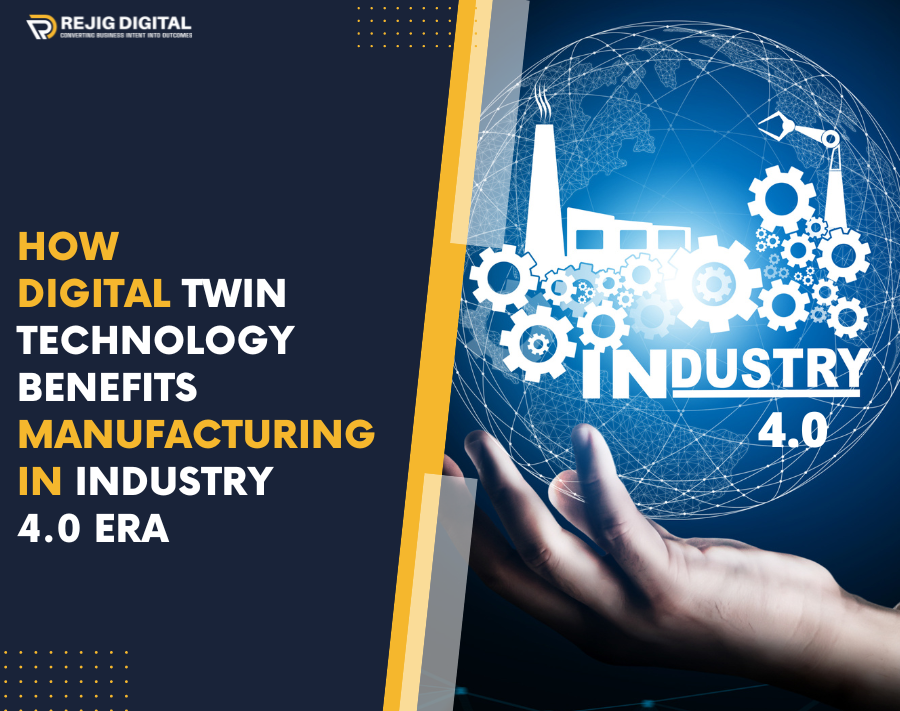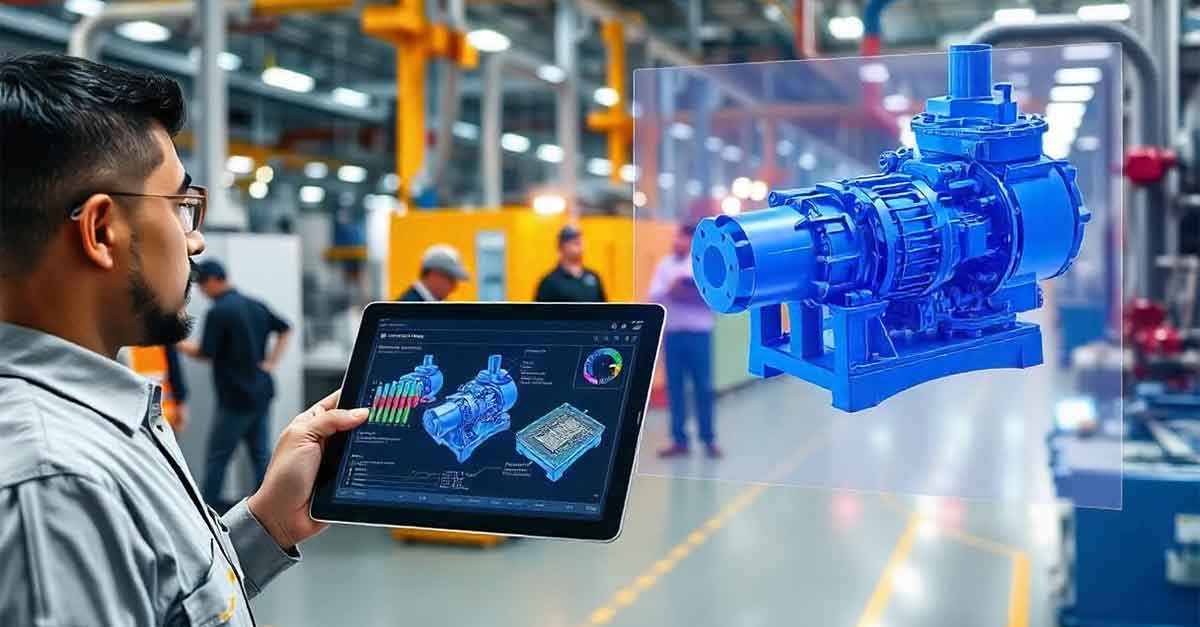Digital Twin Technology is one of the fastest growing concepts in Industry 4.0. In simple words, a Digital twin is the digital representation of physical objects. Although Digital Twin is around for nearly two decades, technological advancements have resulted in its increased usage. Growth in IoT and cloud and the goal to reduce costs and time for product development are the key reasons for the growing digital twin market. This technology has already made its entry into various industries, but it is most useful in the manufacturing domain.
The Industrial IoT is one such technology that has boosted the digital twin strategy. IoT enables enterprises to install sensors on physical objects to collect data. These sensors capture information such as temperature, pressure, or working conditions. Thereafter, sensors send this information to the cloud-based system which is further utilized for analyzing and predicting performance/behavior.
Digital Twin-Brief Introduction
A digital twin utilizes virtual, augmented reality, 3D graphics, and data modeling for creating a virtual model of a process, product, service, or system. The digital twin is an exact replica of the physical world which is maintained through real-time updates. This technology is applicable to a wide variety of environments, including product monitoring while they are in use.
This technology is used in various levels of manufacturing
- Component Level: High focus on a critical component in the manufacturing process.
- Asset Level: A single piece of equipment is focused on creating a digital twin.
- System Level: An entire production line is focused on creating a digital twin.
- Process Level: It involves the entire manufacturing process from product and process design to development, to manufacturing and production. A digital twin is also utilized for distribution and finished products by customers throughout the life cycle, as well as for the development of future products.
Benefits of Digital Twin Technology
The primary role of the digital twin within Industry 4.0 Solutions is their ability to offer comprehensive information on equipment or product performance. In the current environment of cloud computing solutions, enterprises can quickly analyze the data provided by digital twin technology using advanced ML algorithms and actionable insights.
However, there are also some more benefits to this technology. Let’s deep dive into the top advantages of Digital Twin.
-
Streamline Product Development
This technology enables product engineering and testing without creating prototypes. The elimination of product prototyping allows organizations to have negative environmental impacts caused by prototype waste. It helps organizations in research and design products efficiently through constant feedback loops and a huge amount of performance data. This data offers actionable insights which speed up the prototyping process and allow companies to make necessary changes before production.
-
Predictive Maintenance
The IoT sensors of the digital twins can generate big data in real-time which allows enterprises to analyze data proactively to identify problems within the system. This ability enables enterprises to accurately schedule predictive maintenance. Hence, it improves production line efficiency and reduces maintenance costs. The downtime due to equipment failure can cost heavily throughout the production process. Predictive maintenance allows engineers and technicians to monitor machines continuously, predict issues before they happen, and come up with possible solutions.
-
Effective Process Control and Management
When a digital twin model of an asset has been created, it is possible to control and manage the production process. This representation of the process is called a digital thread which involves every operation, equipment, material, and relevant production history related to these objects. This representation helps manufacturers manage and control every step of the process with efficiency. They can also make great adjustments by considering necessary variables. Moreover, it improves visibility and traceability which is important for auditing and quality processes.
-
Efficient Factory Management
This technology allows manufacturers to have a smart and controlled production chain. It also enables managers to gain immediate access and see an overview of the production plan. In case an error or failure happens, factory managers can detect the problems, identify the cause, and come up with the right solutions in real-time.
-
Better Visibility
The technology of digital twins facilitates the location, status, and condition of every asset in the production chain. Irrespective of how big or small the production environment is or the number of assets for tracking, manufacturers can gain control over the entire factory without missing any detail of objects or processes.
-
Cross-Discipline Collaboration
The instant availability of operational data from digital twins is easy to share across various disciplines which enables efficient collaboration and communication. It further enhances faster decision-making. In short, engineering, production, sales, and marketing can all work together by utilizing the same data. It helps in making more informed decisions.
-
Real-Time Remote Monitoring
It is often difficult to get a detailed, real-time view of large physical systems. A digital twin technology is useful in such cases as it is accessible from anywhere, allowing users to monitor and manage system performance remotely.
Conclusion
Digital twins will only get more popular as a vital part of Digital Transformation Solutions. Above are a handful of advantages of this technology, however, there is much more to gain from Digital Twins for the manufacturing process. Digital Twin will further improve the flexibility of enterprises and strengthen their competitive advantage. With several advantages, Digital Twin will be the next big technology that manufacturers around the globe will adopt.
Rejig Digital is a leading provider of enterprise digital transformation solutions across various industries such as manufacturing, automotive, BFSI, chemicals, FMCG, healthcare, pharma, power, and transportation. Our goal is to empower modern enterprises by improving efficiency and reducing operational expenses with customized solutions based on advancements in AR and IIoT.



